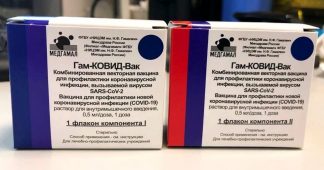by Sergei Gridnev
Jan. 21, 2021
Bloomberg earlier reported that the Hungarian drug regulator had issued a recommendation to authorise the use of the Sputnik V vaccine in the country.
The head of the Hungarian prime minister’s administration, Gergely Gulyas, on Thursday announced that Hungary had approved Russia’s Sputnik V vaccine against COVID-19 and the AstraZeneca vaccine, Reuters reported.
The agency added, citing Gergely Gulyas, the head of the Hungarian prime minister’s administration that Hungarian Foreign Minister Peter Szijjarto will travel to Moscow on Thursday to discuss the coronavirus vaccine.
The Russian Direct Investment Fund (RDIF) later confirmed the decision, saying that Hungary was the first country in the European Union to authorise Russia’s Sputnik V vaccine.
“The Russian Direct Investment Fund [RDIF, Russia’s sovereign wealth fund] announces the Sputnik V vaccine has been approved by the National Institute of Pharmacy and Nutrition of Hungary (OGYÉI). Thus Hungary has become the first country in the European Union to authorise the use of Sputnik V. The vaccine was approved under the emergency use authorisation procedure”, the RDIF said in a press release.
Last week, the head of the Russian Direct Investment Fund Kirill Dmitriev said that Russia will submit its Sputnik V vaccine for EU approval next month.
In August, Russia became the first country to register a COVID-19 vaccine, which was named Sputnik V. The clinical trials of the jab have shown an efficacy rate of more than 90 percent.
Sputnik V was developed by the Gamaleya Research Institute and marketed abroad by the RDIF.
Published at sputniknews.com










